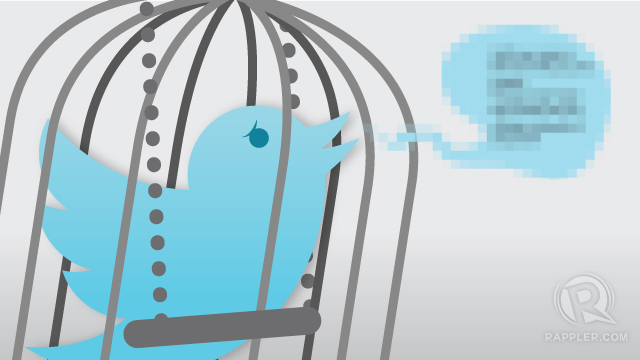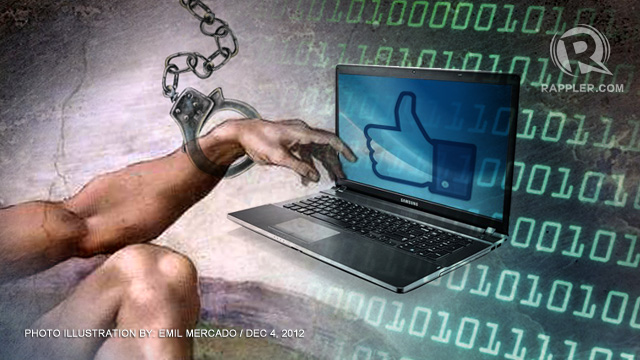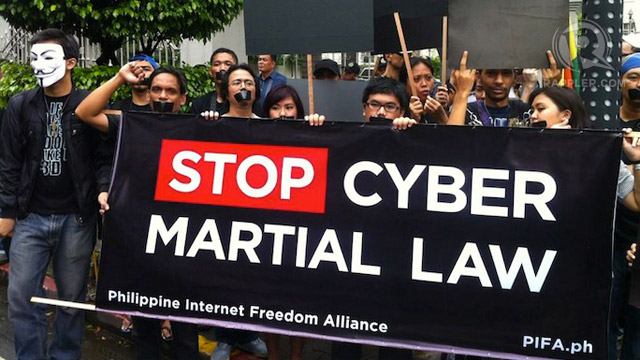SUMMARY
This is AI generated summarization, which may have errors. For context, always refer to the full article.

Editor’s Note: This is the first of a 3-part piece on Internet freedom and the future ahead.
MANILA, Philippines – While 2012 was a year where the Filipino people had to band together to stop a cybercrime law, 2013 may very well be the year for the world to maintain a vigil for their rights on the Internet.
To look forward, let’s take a quick look back at some points where the future of the Internet was in jeopardy, and then see what 2013 might hold for the fate of the worldwide web.
2011 and the Internet
2011 saw the introduction of some major legislation in other parts of the world. In the United States, the Stop Online Piracy Act (SOPA) and the Protect IP Act (PIPA) were there to give Internet users a headache. Both sought to stop copyright infringement online, but the implementation seemed prone for abuses and reduced the potential freedom of expression of people in the US and outside it.
Both SOPA and PIPA faced a significant backlash from users worldwide, with protests against SOPA and PIPA culminating in what was called American Censorship Day on November 16, 2011. The two are basically stalled, though those opposing the SOPA and PIPA are working to kill the acts entirely.

The Anti-Counterfeiting Trade Agreement (ACTA), while drafted in 2010, was formally published in 2011. This multinational treaty was made to create international standards for enforcing intellectual property rights, including things like digital piracy.
This particular agreement shares some of the same issues that SOPA and PIPA had, namely issues with freedom of expression and privacy rights, and is perhaps even more secretive in the way it was held than SOPA and PIPA. Despite this, however, Australia, Canada, Japan, Morocco, New Zealand, Singapore, South Korea, and the United States have signed the agreement in 2011, with more signing in 2012.
Most notably, October of 2012 saw Japan ratifying this agreement, formally approving it and perhaps paving the way for Japan’s own strict anti-piracy law as well as other countries potentially ratifying the agreement as well.
2012 and Internet freedoms
For the most part, 2012 was the year when there appeared to be fewer hackles raised regarding Internet freedoms. The war appeared over for many, but for the Philippines, it proved to be a saga all its own.
In the US, the Cyber Intelligence Sharing and Protection Act (CISPA) was brought up in the first half of 2012, and was seen by opposition groups as worse than SOPA or PIPA. Whereas SOPA, PIPA, and ACTA were about stopping piracy, CISPA was about stopping threats to US national security while also tackling threats to intellectual property.
Mashable’s description of CISPA in April of 2012 paints a rather interesting picture. According to Mashable’s write-up, CISPA would enable intelligence agencies and businesses to work together, so to speak, to watch out for threats. Also, third-party cybersecurity firms would be allowed to “use cybersecurity systems to identify and obtain cyber threat information” and “share cyber threat information with any other entity designated by the protected entity, including the federal government.”
While that sounds great if you’d like to be safe from terrorism, the language of the bill could be interpreted in such a way that ISPs and companies could be allowed to intercept private messages and send them to the government.
This bill’s status currently is that it’s been referred to the Senate, but hasn’t been moving since then.

As for the Philippines, the outpouring of reactions regarding Republic Act 10175 (the Cybercrime Law) was a significant story that showed just how much Filipinos value freedom of expression.
Despite dialogues being held and people poking holes in the wording of the legislation, supporters of the Cybercrime law were adamant that it was needed to protect people from digital libel and slanderous Youtube videos.
A number of different institutions, Rappler included, opposed the law, and while it did get through, the Supreme Court issued a temporary restraining order on the law, with oral arguments on the case to be held on January 15, 2013. Of course, while we do need ways and means to protect individuals from being misrepresented online, as Senator Teofisto Guingona III put it, “a Cybercrime Prevention Act is necessary, but must not be oppressive.”
On the world stage, the World Conference on International Telecommunications ended with the Philippines choosing not to sign a telecommunications treaty that would help maintain technical standards for traditional telecommunications and, as WCITLeaks mentioned, the Internet. While the treaty wouldn’t actually confer any powers, it would create a precedent that the International Telecommunications Union is the go-to body for internet standards.
Into the future
With a free and open web worldwide, Rappler can grow into a place where everyone can learn about what’s happening around them, react to the news, and work towards creating change. Without Internet freedoms, Rappler may cease to exist for a lot of reasons.
2013 will interesting primarily because the world stage may see some countries fighting for Internet freedom and other countries seeking to curtail it. At the very least, some countries will want to make sure they know who you are before you can post somerthing online.
With everything from the Philippines’ cybercrime law coming into play again to CISPA getting looked at in 2013 by different countries, the Internet of today may be very different from the Internet 364 days from now. Here’s to hoping 2013 becomes a fruitful year for the future of the worldwide web. – Rappler.com
Rappler imagines two future scenarios based on what can happen in 2013: one where the fight for Internet freedom succeeds and one where it fails.
More on the Cybercrime law:
Add a comment
How does this make you feel?
There are no comments yet. Add your comment to start the conversation.